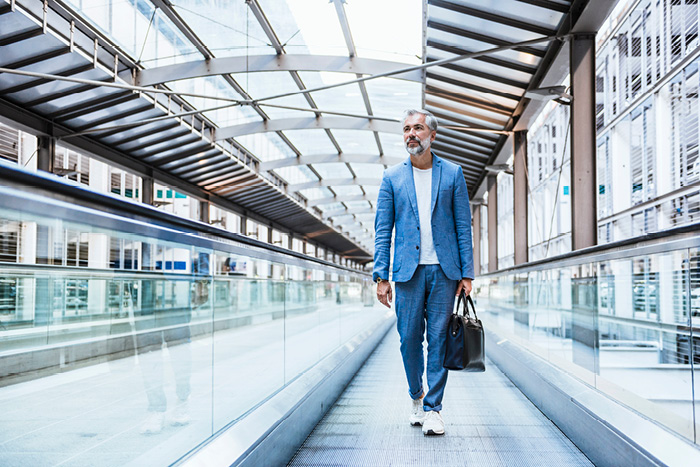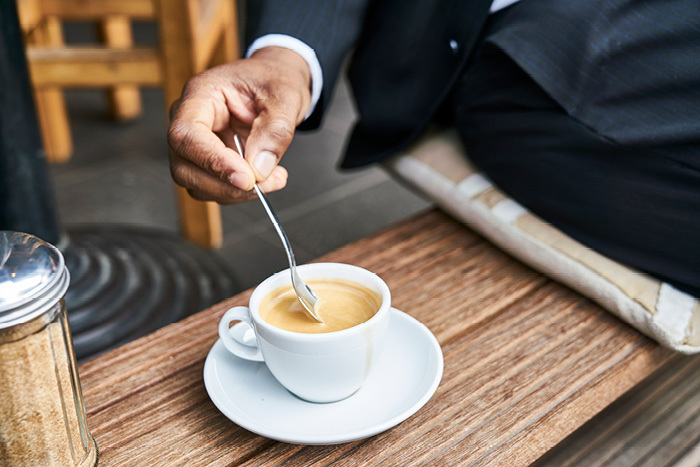
More than two million Australians travelled by air for business purposes in 2017, a figure equivalent to 11 per cent of the population. That’s a lot of frequent flyer points, but it’s also a lot of pressure on the environment.
As a business traveller, you don’t always have a choice regarding when, where and even how you travel, but that doesn’t mean you can’t do your bit. Here are a few ways to reduce your impact on the environment when you’re on the road.
Start the conversation
From a convenience point of view, perhaps one of the nicest things about business travel for many of us is having the admin taken care of. Flight? Sorted. Transfers? Sorted. Hotel? Sorted. But knowledge is power, right?
By learning about your company’s travel policies and procedures, you’ll be better placed to support any sustainability goals. If such goals don’t exist, perhaps your influence could be a catalyst for change. Who are your company’s preferred suppliers – think airlines, hotels and car hire services – and how do their green credentials stack up? Even asking these questions could set environmentally friendly wheels in motion.
You can also regain control of your business-travel footprint by using a carbon calculator, like this one. It will help you calculate your emissions and the offset cost, which you can then donate to climate protection projects.
Fly smarter
When you do get a say, choose an airline with a better emission-reducing record (take a look at Atmosfair’s Airline Index for rankings); try to book a direct flight over a transfer (it’s takeoff and landing that create most of a plane’s emissions); and choose economy over business (less room, less impact).

Check your baggage
Packing light will save energy no matter what mode of transport you use. That said, it’s recommended you take your own toiletries. Those complimentary single-use bottles you’ll find in most hotels might be handy, but they also play a starring role among the estimated eight million tonnes of plastic you’ll find dumped in our oceans each year. Rather than taking your full-size products, grab some small reusable bottles, the kind you can pick up from most supermarkets and pharmacies.
Speaking of plastic
Single-use plastics is a hot topic in Australia at the moment and attitudes are shifting. Just as you’re probably already doing with your grocery shop, minimise your plastic bag use while travelling or, better still, eliminate them all together. There are plenty of alternatives. Likewise, plastic straws. BYO stainless-steel straw or just go ahead and drink without one. Travel with a BPA-free water bottle and refill it, rejecting the ubiquitous bottled water offered at business meetings and conferences. If you’re headed overseas and don’t trust the water quality, pack water purification tablets. Bring your reusable coffee cup, too. Australians use an estimated one billion disposable coffee cups each year and, contrary to popular belief, they are not recycled.
Room service
There are plenty of ways to conserve water and electricity when you’re on the road, and some strategies have been in play for years such as reusing hotel towels and bed linen rather than having them washed each day. You can also take short showers rather than long showers or baths and turn of lights, airconditioning and the television when you leave the room.

Out and about
There is much more to sustainable travel than our physical environment. If you’re travelling abroad, it’s crucial to consider your impact on the economic and cultural environment too. Are your travel dollars supporting local people and communities? Are your actions helping preserve local customs and traditions? Where possible, enjoy locally owned and operated restaurants and bars, and shop at local markets. And always respect traditional arts, lifestyles, practices and language.
You can read about Flight Centre Travel Group’s commitment to sustainable travel here.
